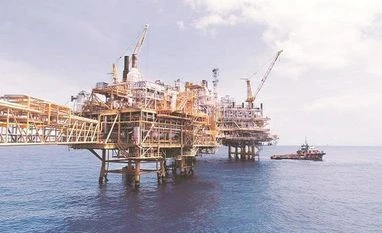By Ahmad Ghaddar, Rania El Gamal and Alex Lawler
LONDON/DUBAI (Reuters) -OPEC and its allies will likely stick to their existing policy of gradual oil output increases, four sources said on Wednesday, even though the group revised up its 2022 demand outlook and still faces U.S. pressure to raise production more quickly.
The Organization of the Petroleum Exporting Countries and allies led by Russia, a group known as OPEC+, holds a full ministerial meeting online on Wednesday.
The group agreed in July to phase out record output cuts by adding 400,000 barrels per day (bpd) a month to the market.
"(OPEC+) will most likely keep the agreement as it was agreed," one of the sources said ahead of Wednesday's talks.
A meeting of key OPEC+ ministers from the monitoring committee, which usually precedes the main meeting, ended on Wednesday in just under 30 minutes and made no proposals to adjust existing policies, an OPEC+ source said.
Also Read
On Tuesday, OPEC+ experts revised the 2022 oil demand growth forecast to 4.2 million bpd, up from a previous 3.28 million bpd, potentially building the case for higher output in future.
The outlook for 2022 looks optimistic based on data for 2021. OPEC+ expects demand to grow by 5.95 million bpd this year after a record drop of about 9 million bpd in 2020 because of the COVID-19 pandemic, but demand only grew by about 3 million bpd in the first half of 2021.
"Demand has disappointed relative to lofty expectations and there are still headwinds, particularly in Asia. We only expect demand to rise back to 2019 levels in the second half of 2022," said Amrita Sen, co-founder of Energy Aspects think-tank.
The United States has called for speedier output increases by OPEC+ as benchmark Brent crude traded above $72 per barrel, close to multi-year highs. [O/R]
Russia's Deputy Prime Minister Alexander Novak, who handles OPEC+ policy for Moscow, said OPEC+ action to curb output had dealt with the market surplus and said he was convinced demand would be robust this and next year.
"Now it is important to maintain this balance and synchronise production and demand as the market rebounds," Novak said told reporters.
The demand forecast revision came during the OPEC+ joint technical committee (JTC), which on Tuesday presented an updated report on the state of the oil market in 2021-2022.
On Tuesday, OPEC+ sources said the report, which has not been made public, forecast a 0.9 million bpd deficit this year as global demand recovers.
The report had initially forecast a surplus of 2.5 million bpd in 2022 but this was later revised to a smaller surplus of 1.6 million bpd due to stronger demand, the sources said.
As a result, commercial oil inventories in the OECD, a group of mostly developed countries, would remain below the 2015-2019 average until May 2022 rather than the initial forecast for January 2022, the JTC presentation showed, the sources said.
Rystad Energy's head of oil markets Bjornar Tonhaugen said it was not yet clear "whether demand will be able to grow as quickly as OPEC+ and the market predicts, given the risk of new lockdowns to fight the unresolved COVID-mutant spread."
(Additional reporting by Olesya Astakhova in Moscow; Writing by Dmitry Zhdannikov; Editing by David Goodman, Edmund Blair and Alexander Smith)
(Only the headline and picture of this report may have been reworked by the Business Standard staff; the rest of the content is auto-generated from a syndicated feed.)
)